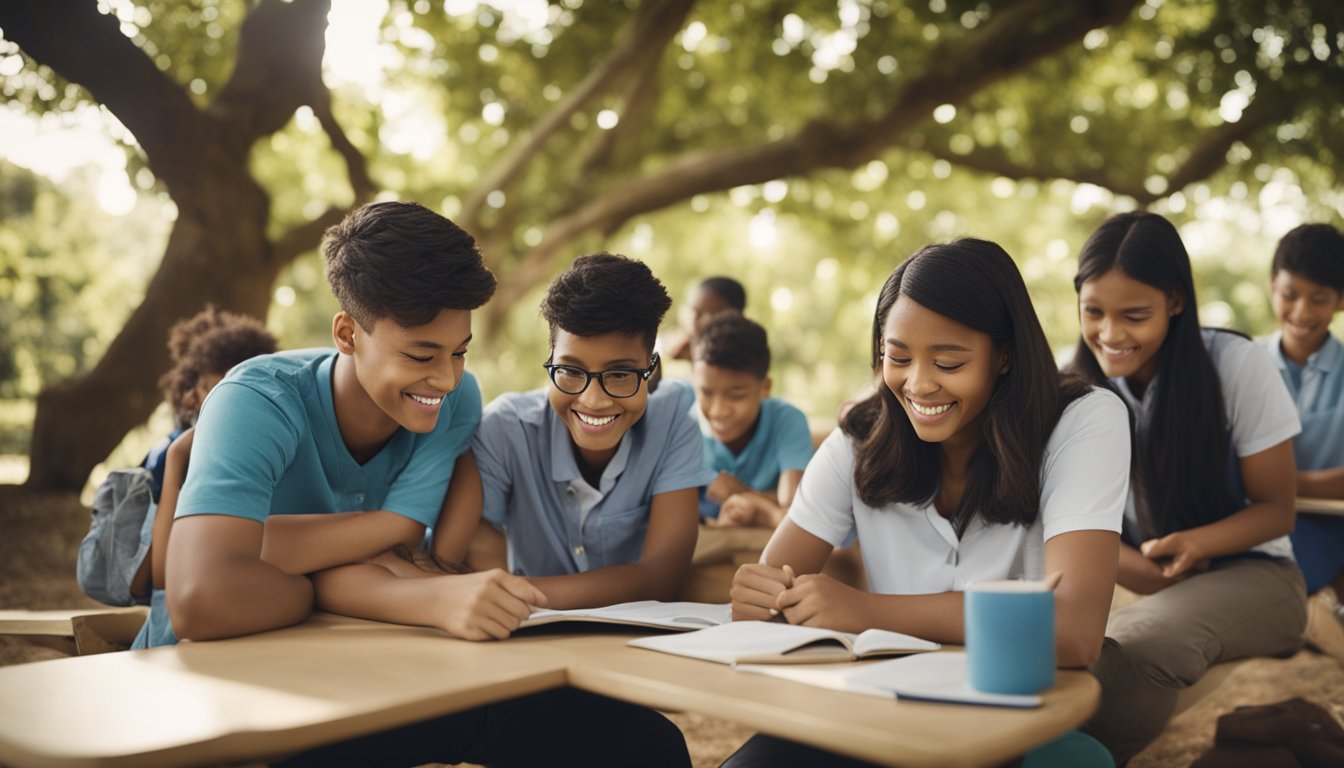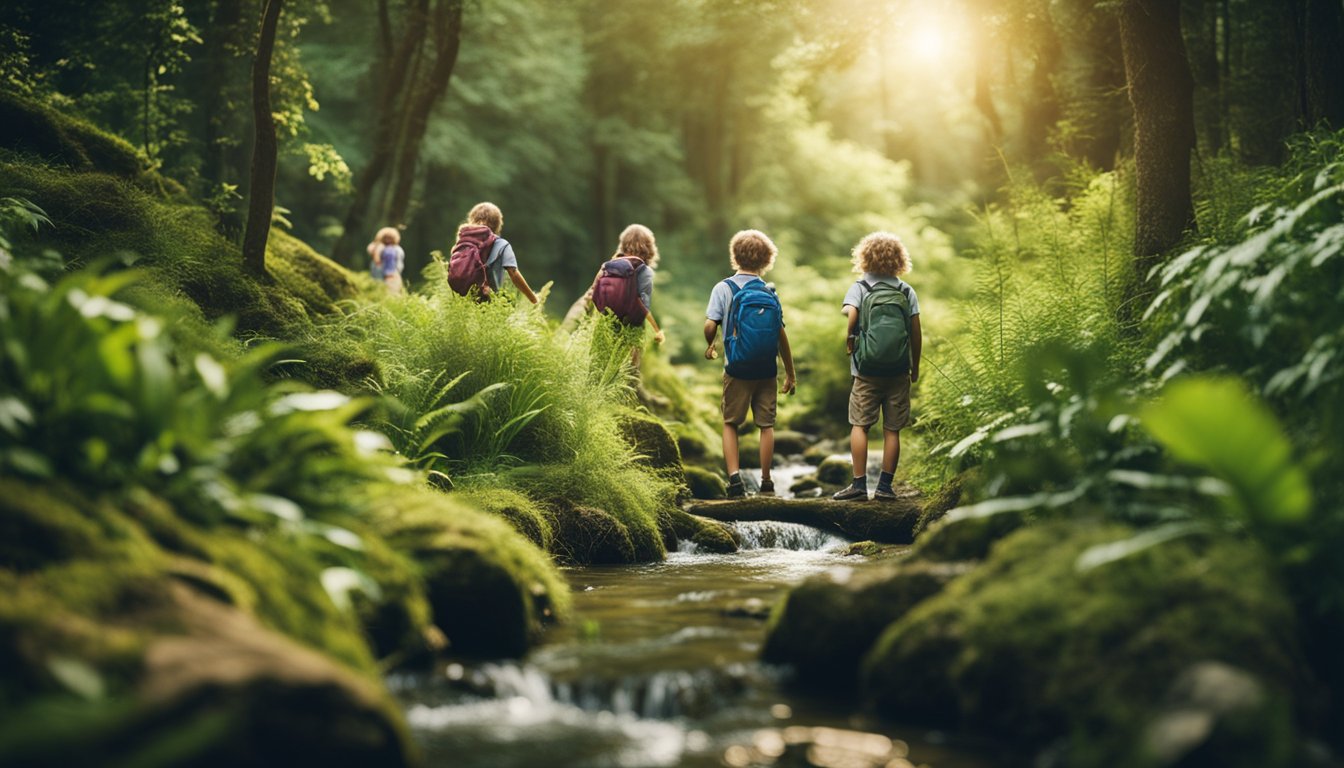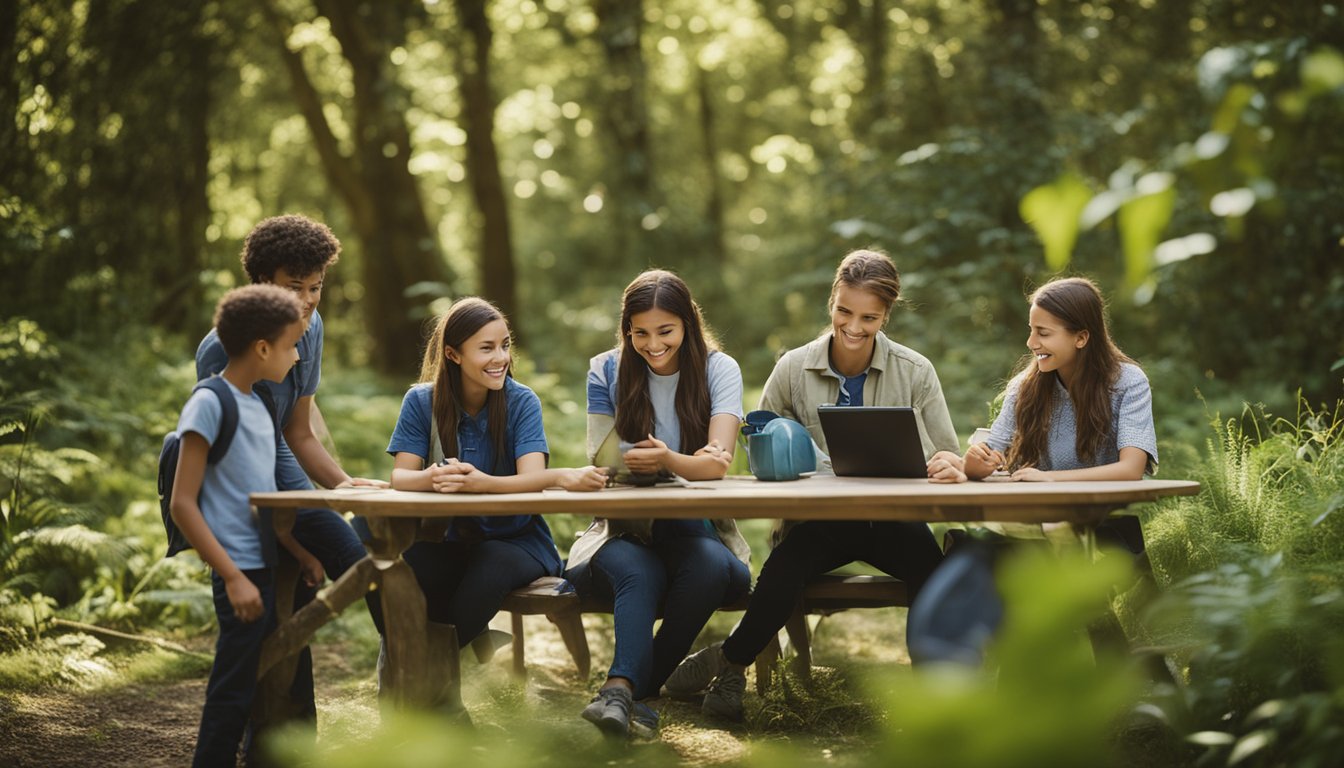Late updated: 29 Nov 2024 15:11
Written by:
Outdoor Learning Enhancing Education Beyond The Classroom: Expanding Academic Horizons
A shift is happening in education as we increasingly recognise the value of the world beyond classroom walls. Outdoor learning is reshaping education by harnessing the natural environment to present diverse, immersive learning opportunities. Schools across the globe are embracing this trend, understanding that experiences in nature stimulate academic learning and personal growth. Engaging with the outdoors facilitates a holistic educational approach, enhancing cognitive abilities and social skills while boosting well-being.

By integrating natural elements into education, we can cultivate curiosity and foster a deeper connection to the environment. This educational strategy not only enriches traditional curriculums but also promotes skills such as problem-solving and critical thinking. Exposure to varied landscapes and ecological systems opens new avenues of exploration and discovery, presenting learning experiences that are both educational and invigorating.
Our community's role in supporting outdoor education is crucial. As educational paradigms shift, it's our responsibility to advocate for these enriched learning environments. The synergy between students, educators, and nature delivers a dynamic and flexible approach to education, ensuring it remains engaging and relevant to the evolving world.
Key Takeaways
- Outdoor learning enhances education beyond traditional classroom settings.
- Engaging with nature boosts cognitive and social skills.
- Community involvement is vital for successful outdoor education integration.
Foundations of Outdoor Learning

Outdoor learning enriches education by blending nature-based experiences with traditional pedagogy. This approach fosters student development across cognitive, social, and physical domains. It integrates environments and teaching methods to enhance learning outcomes and personal growth.
The Pedagogy of Outdoor Education
Outdoor education is built on experiential learning principles. In this pedagogy, students engage directly with their environment, promoting deep understanding and retention. Learning is student-centred, with activities ranging from nature walks to forest school projects. Teachers act as facilitators, guiding learners through exploration and inquiry. This approach enhances cognitive skills while encouraging creativity and problem-solving abilities.
Teacher training is crucial in this framework. Educators need to develop skills in planning and executing outdoor lessons that align with curriculum objectives. This training ensures effective delivery and maximises learning outcomes.
Outdoor Learning Environments
The setting of outdoor learning plays a pivotal role in its success. Outdoor classrooms, gardens, and natural spaces offer diverse and stimulating environments. These settings encourage exploration and connect students with nature intimately, fostering a strong nature connection.
Each environment provides unique learning opportunities. For instance, forest schools allow for hands-on activities that develop practical skills. Such settings contribute to physical health, offering spaces for exercise and movement. The outdoor environment itself is a dynamic classroom where weather, seasons, and natural elements influence the learning experience, enriching the educational journey.
Core Benefits and Learning Outcomes
Outdoor learning significantly enhances educational outcomes. It supports academic performance by making learning engaging and relevant. Students develop strong personal skills, including social interactions and emotional development. The approach also nurtures holistic development, balancing mental health and physical health benefits.
It builds social skills through group activities, encouraging teamwork and communication. Emotional development is supported as students gain confidence and resilience in unfamiliar settings. The holistic benefits extend to the entire education system, encouraging a balanced and enriched learning experience that goes beyond traditional classroom boundaries.
Integrating Outdoor Learning in Modern Education

Incorporating outdoor learning in modern education brings holistic approaches to learning, enhancing both academic understanding and life skills. This integration fosters a connection with nature, promoting environmental consciousness and social skills.
Curriculum Enhancement Through Nature
Incorporating nature into the curriculum enriches educational experiences. Subjects like science, geography, and physical education gain depth when taught outdoors. For example, exploring biodiversity in a garden or park can make ecological and biological concepts more tangible.
Experiential learning opportunities in natural settings also support academic learning. This approach can develop problem-solving skills by encouraging pupils to engage with their environment directly. Lessons on conservation and sustainability become more impactful when experienced firsthand.
Outdoor settings promote health and well-being as well. Regular exposure to natural environments has been shown to enhance physical health and reduce stress, supporting holistic education.
Innovative Practices and Activities
Innovative practices in outdoor learning involve creative approaches that extend beyond conventional classroom activities. Udeskole or outdoor schools, is a concept where students partake in regular lessons outside, engaging in topics across the curriculum.
Practical activities such as gardening, adventure activities, and sustainability challenges offer hands-on experiences. Using technology, such as tablets for data collection during nature walks, can integrate modern elements into traditional settings.
By encouraging teamwork and communication skills, outdoor activities help develop social competencies. Students can better understand concepts like climate change through direct interaction with their environment.
Challenges and Solutions in Implementation
Implementing outdoor learning can pose challenges such as resource allocation, safety concerns, and curriculum integration. To overcome these, schools need well-planned strategies that ensure outdoor spaces are safe and accessible for all students.
Teacher training is crucial in addressing these challenges. Educators must be equipped with the skills to integrate outdoor experiences effectively into their lesson plans.
Collaboration with local environmental organisations can provide valuable resources and support. This can include workshops on biodiversity or partnerships for conservation projects, enhancing the educational value of outdoor learning.
By addressing these challenges, we can fully integrate outdoor learning, enriching the educational landscape and fostering an appreciation for the natural world.
Frequently Asked Questions

Outdoor learning extends educational experiences and can significantly enrich students' physical, cognitive, and emotional development. By exploring natural environments, pupils engage more actively and interactively, which can cultivate an appreciation for nature and foster personal growth.
What constitutes effective lesson plans for enhancing education with outdoor learning?
Effective lesson plans must integrate hands-on activities that connect curriculum objectives with the natural world. It's crucial to design tasks that promote critical thinking while considering safety and resource availability. Utilising projects that encourage observation and interaction with nature can greatly enrich the learning experience.
How can outdoor learning contribute to a student's physical development?
Outdoor learning supports physical development by encouraging activities such as climbing, walking, or gardening. These activities promote motor skills, coordination, and fitness. As students engage physically, they develop endurance and strength, alongside an improved sense of spatial awareness.
What are the best practices for integrating outdoor education in early childhood?
For early childhood, adopting a playful approach is vital. Activities should foster imagination and sensory exploration. Encouraging children to engage with natural elements like soil, water, and plants can enhance their curiosity and support social and emotional development through cooperative play.
In what ways does outdoor education benefit high school students?
High school students benefit from outdoor education by honing problem-solving skills and fostering teamwork. These experiences can develop leadership qualities and resilience. Outdoor tasks often require adaptability, allowing students to learn practical applications of theoretical knowledge.
How can outdoor activities extend learning opportunities beyond traditional classroom settings?
Outdoor activities offer experiential learning, enabling pupils to apply academic skills in diverse contexts. This approach can include fieldwork, experiments, or ecological projects that require direct interaction with the environment, thus bridging theory and practice.
What is the significance of outdoor play in early childhood education?
Outdoor play is crucial in early childhood for fostering developmental skills in a natural setting. It aids in creativity, social skills, and emotional resilience. Through exploratory play, children gain confidence while developing physical abilities in an open and stimulating environment.
